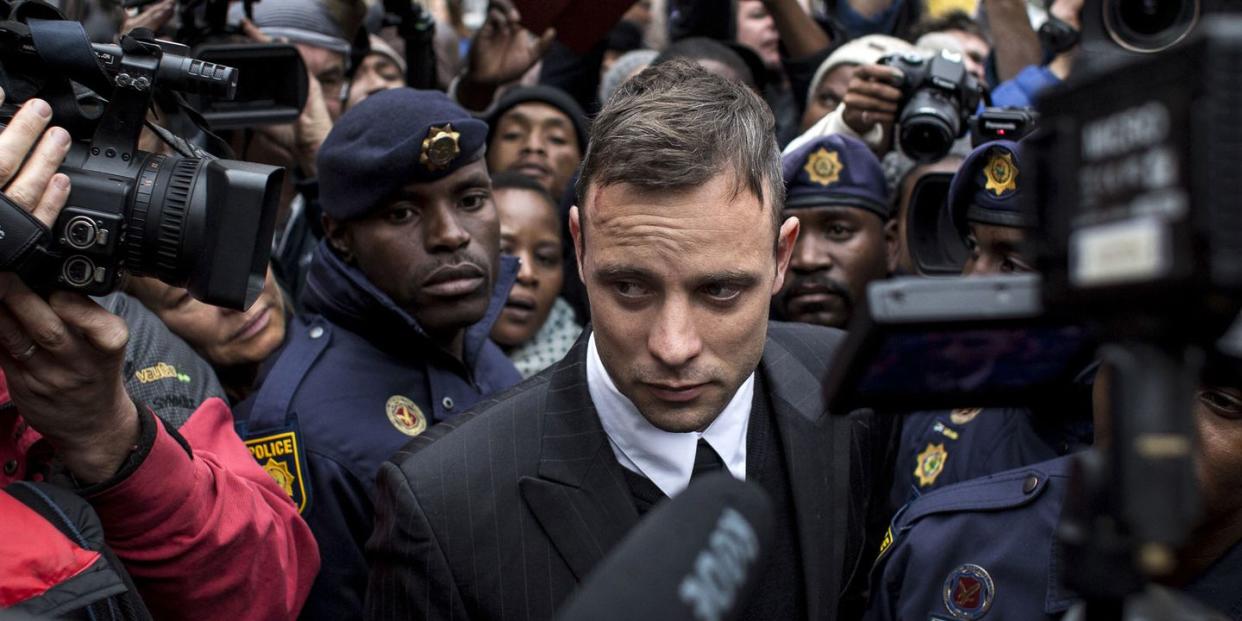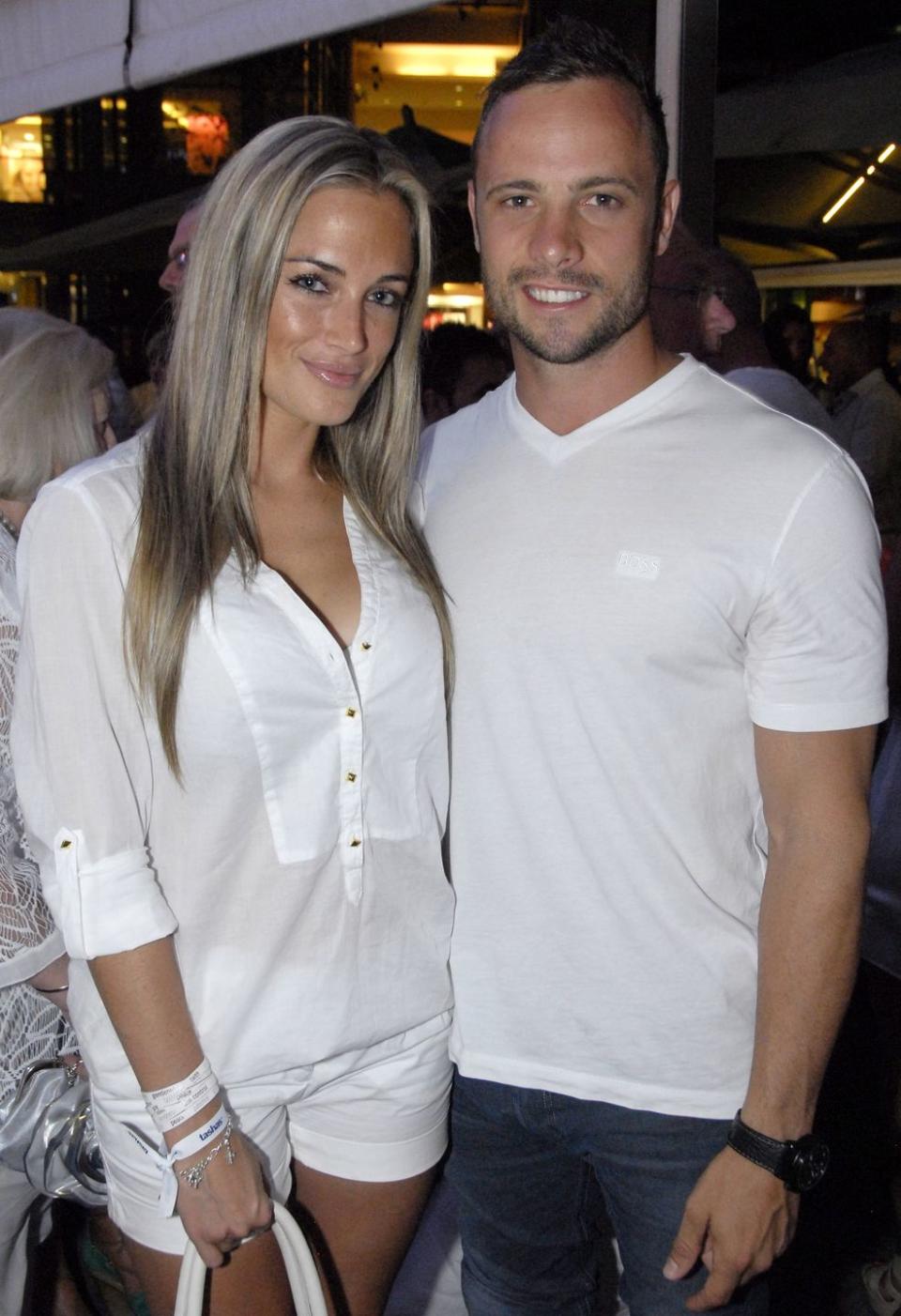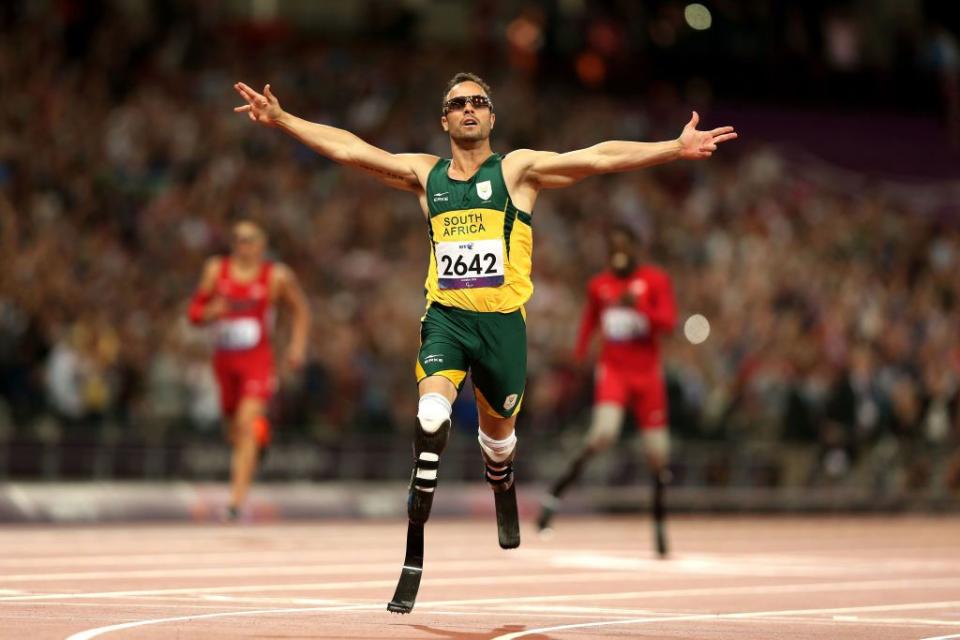The controversy around the BBC's Oscar Pistorius documentary is entirely justified

- Oops!Something went wrong.Please try again later.
The Trials of Oscar Pistorius and this article contain discussion that some might find upsetting.
On February 14, 2013, aged just 29, Reeva Steenkamp was shot and killed by her boyfriend in his home.
While he claimed it had been an accident, details started to emerge that threw new light on their seemingly picture-perfect relationship. What's more, his supposedly volatile temper, controlling temperament and increasing paranoia signposted bright red flags that would be instantly recognisable for any survivor of domestic abuse.
The man in question was Oscar Pistorius, a world-famous athlete. He was arrested and later found guilty on charges that ultimately related to Reeva's death. He is currently behind bars and, following appeals and re-sentencing, is now a convicted murderer.
Seven years after her death, while Pistorius still sits behind bars, the BBC has decided to release a four-part series about the Olympian.

Entitled The Trials of Oscar Pistorius, the documentary meticulously lays out the life of the sports star. Charting his childhood, the loss of his mother, his medical history and his impressive career, it does not leave behind a single achievement or personal win.
Through interviews with family members, friends and his professional team, the overriding message seems to be that – despite the tragic and violent death of his girlfriend – Oscar is a man who still deserves celebration. His sporting legacy, made up of the many boundaries that he broke through, should be able to coexist with the truth of what he did.
For many survivors and advocates, this simply doesn't wash.
"It's as though everyone forgot there was a real-life human being, with a real-life identity, with a name and a purpose, who belonged to somebody," Andrea Johnson, South African State Prosecutor, said of the world's reaction to the criminal trial. "She [Reeva] belonged to her parents and her family and her friends. [It] got lost. It got lost because of the media frenzy."
Ironically, this largely sums up the approach of the four-part documentary series, which centres on Oscar Pistorius and his perspective in the story.
While Reeva is given a voice through interviews with her family and friends and archive footage, it is never afforded quite enough volume to drown out the celebrity status of the man who killed her.
If we are to give The Trials of Oscar Pistorius the benefit of the doubt for a moment, the documentary may have been trying to follow the blueprint of the award-winning OJ Simpson documentary OJ: Made in America.
This began by offering context for OJ's superstardom, something which undoubtedly seeped into the media storm that surrounded the murder of his ex-wife Nicole Brown Simpson and Ron Goldman. For Made in America, this was a narrative tool which served only as an explanation to those that had not grown up in the USA in the late '70s and early '80s.
To understand the appetite for the trial, audiences needed to grasp that OJ "The Juice" Simpson had once been a David Beckham or Michael Jordan-like hero to many, before the '95 criminal case overtook his sporting celebrity.

But The Trials of Oscar Pistorius trips over itself in the way that it peppers in the backstory. By intertwining the investigation into Reeva's murder with footage of Pistorius' glory days, viewers are invited to sympathise with him. Instead of feeling the full weight of the loss of Reeva Steenkamp, we're presented with the warped idea that the real tragedy was tied up in seeing a man of such promise fall so spectacularly from grace. The constant flashbacks act as a regular reminder of what he achieved, rather than allowing for his legacy to be overwritten.

To many, Pistorius may have been a good man – we know so from the accounts highlighted in the series. But he is also a man who shot his girlfriend. One truth does not negate the other but the documentary's attempt to 'two-side' the story inadvertently lends more weight to the perspective from which this particular narration is being told.
If the BBC docu-series had wanted to embark on this case, it could have taken the opportunity to explore the intricacies of toxic relationships and the insidious ways in which they can play out. South Africa is a dangerous place for women and domestic violence is no less a serious problem there than anywhere. This was touched on briefly in the episodes, but was not afforded much analysis or unpacked in any meaningful way.
On the other side of the coin, if the documentary was attempting to come at the story from a place of questioning Pistorius' guilt (he has always maintained that he had not meant to shoot Reeva), it failed to provide a convincing pay-off to justify itself.
What is indicative of the tone of the series is that the final moments were dedicated not to Reeva or her family's overwhelming loss, but instead to Oscar's state of mind and his wish to be forgiven.
This documentary sends the message that, even after a criminal trial has established guilt, we're still in a place where the victim is secondary. And that's a dangerous place to be.
We would encourage any readers who are affected by the issues raised in this story to contact Refuge (www.refuge.org.uk) or Women's Aid (www.womensaid.org.uk). The 24-hour, freephone National Domestic Abuse Helpline is 0808 2000 247. The US National Domestic Violence Hotline is 1-800-799-SAFE (7233), or text LOVEIS to 22522.
The Trials of Oscar Pistorius airs on BBC Two and is available on BBC iPlayer.
Digital Spy has launched its first-ever digital magazine with exclusive features, interviews, and videos. Access the latest edition with a 1-month free trial, only on Apple News+.
Interested in Digital Spy's weekly newsletter? Sign up to get it sent straight to your inbox - and don't forget to join our Watch This Facebook Group for daily TV recommendations and discussions with other readers.
You Might Also Like

